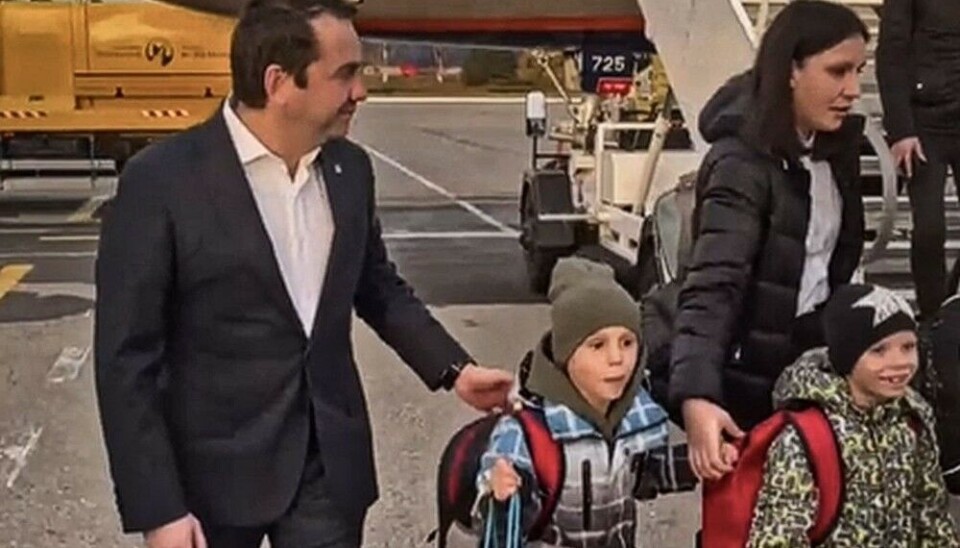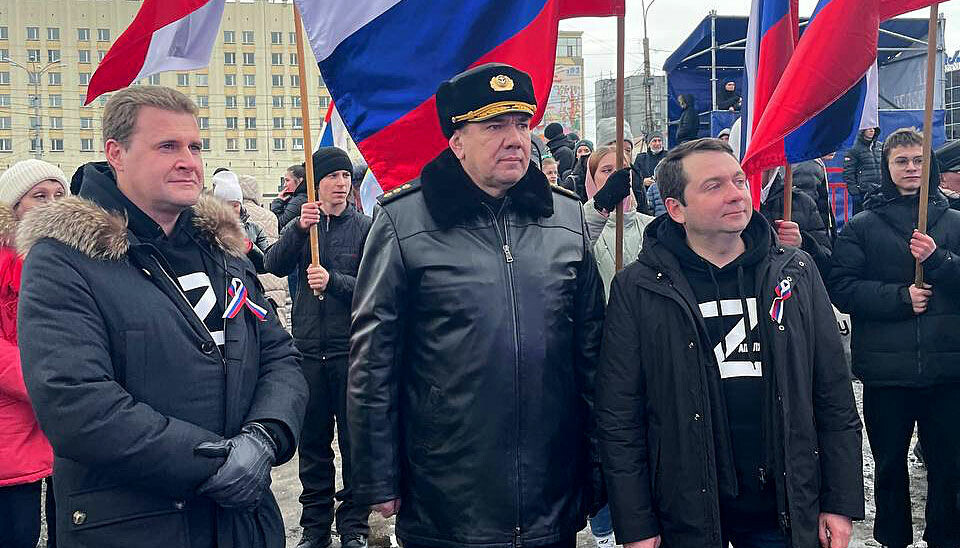
Deported Ukrainian children arrive in Murmansk
The governor of the far northern Russian region stood ready at the airport to greet a group of 11 children that arrived from occupied Ukrainian territories.
“The kids are very positive and nice, and my first meeting with them was very warm-hearted and emotional,” Governor Andrei Chibis said as he welcomed the newcomers.
“I believe that our North will be a good home for them,” the governor underlined.
In the group were several kids aged only 6-7 years, a video from the governor’s office shows.
According to Chibis, the kids will live in foster families in the towns of Kandalaksha, Kovdor., Polyarnye Zori and Olenegorsk.
The Ukrainian youngsters are part of a big group of kids that have been moved from occupied lands to Russian regions. Many of them forcefully, against their will.
Michelle Bachelet, the UN High Commissioner for Human Rights (OHCHR), in June expressed her concern about the children that are being “forcibly deported” from the occupied areas and taken to Russia for adoption.
The UN agency has looked into allegations that youngsters are being taken from orphanages in Donbas
In a statement, Ms. Bachelet said that the “OHCHR cannot yet confirm these allegations or the number of children who could be in such a situation, [but] we are concerned about the alleged plans of the Russian authorities to allow the movement of children from Ukraine to families in the Russian Federation, which do not appear to include steps for family reunification or respect the best interests of the child.”
According to the UN Children’s Fund Unicef, before the Russian invasion on 24 February, there were more than 91,000 children in Ukraine’s orphanages, boarding schools and other institutions for youngsters.
In a statement, Unicef said that it was aware of reports that Russia “may be modifying existing legislation to facilitate the fast-tracking of adoption” of orphans from the Donbas.
“UNICEF is of the view that adoption should never occur during or immediately after emergencies. Children separated from their parents during a humanitarian emergency cannot be assumed to be orphans. Every opportunity should be provided for family reunification.”
At the same time, the UN Commission of Inquiry on Ukraine said it had received testimonies indicated that “there is a significant number of children disappeared in temporarily occupied territories, particularly children from institutions”.
Meanwhile, the Governor of Murmansk openly ignores the international condemnation. A video actively distributed by the governor’s office shows the regional leader, dressed in a fancy suit, greeting the children and giving them school bags.

Andrei Chibis has since the start of the latest Russian onslaught on Ukraine been a strong proponent of war. He has travelled around in the north Russian region wearing clothes with the “Z”, the Nazi-inspired Russian war symbol, and actively taken part in recruitment efforts for more soldiers.
Following Putin’s mobilisation announcement on 21st of September, he has himself headed the regional draft board.
“I very much expect your support, and I am confident that all the goals set by the president will be successfully achieved in the Murmansk region,” he told his local countrymen.















